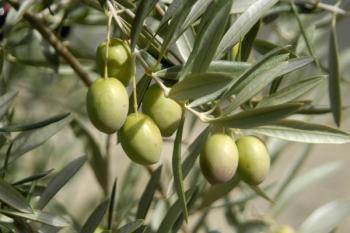
More Evidence that Lecithin Delivery System Boosts Boswellia Bioavailability
Boswellic acids have historically been shown to be poorly bioavailable when ingested orally.
The resin of the Boswellia serrata tree and its active boswellic acids are commonly sold in the dietary supplements market as an ingredient for promoting anti-inflammation and joint health; however, boswellic acids have historically been shown to be poorly bioavailable when ingested orally. Now, ingredient supplier Indena (Milan) says it has new human clinical evidence that its Phytosome bioavailability-enhancing technology can improve Boswellia serrata absorption.
The company presented the data at the
Casperome is a 1:1 ratio of Boswellia serrata extract and Phytosome, a non-GMO soy lecithin carrier that helps shuttle the active ingredient for enhanced absorption. The company says there is a difference between Phytosomes and liposomes, which are commonly used to encapsulate ingredients to make them more bioavailable. While both comprise micelles, the difference, as the company describes, is this: “With liposomes, the ingredients are dissolved in the central part of the cavity, with limited possibility of molecular interaction between the surrounding lipid and a hydrophilic substance. In a Phytosome, the ingredient is dispersed into lecithin, a dietary surfactant, and can be compared to an integral part of the lipid membrane.”
Preclinical animal studies, including a
Indena has already used Phytosome technology to improve the bioavailability of other herbal extracts, including ginkgo, milk thistle, and green tea, as well as phytochemicals like curcumin and silybin. Casperome, standardized to a minimum of 25% Boswellia serrata triterpenoid acids, was launched earlier this year.
Of the latest human study, Christian Artaria, Indena’s marketing director, said, “We are excited for the results we achieved, as for the first time, with a single dosage of 500 mg of Casperome, relevant plasmatic levels could be reached and measured in humans.”
Pictured: Boswellia serrata tree resin
Editor-in-Chief
Nutritional Outlook magazine
jennifer.grebow@ubm.com
Photo © iStockphoto.com/
Newsletter
From ingredient science to consumer trends, get the intel you need to stay competitive in the nutrition space—subscribe now to Nutritional Outlook.





